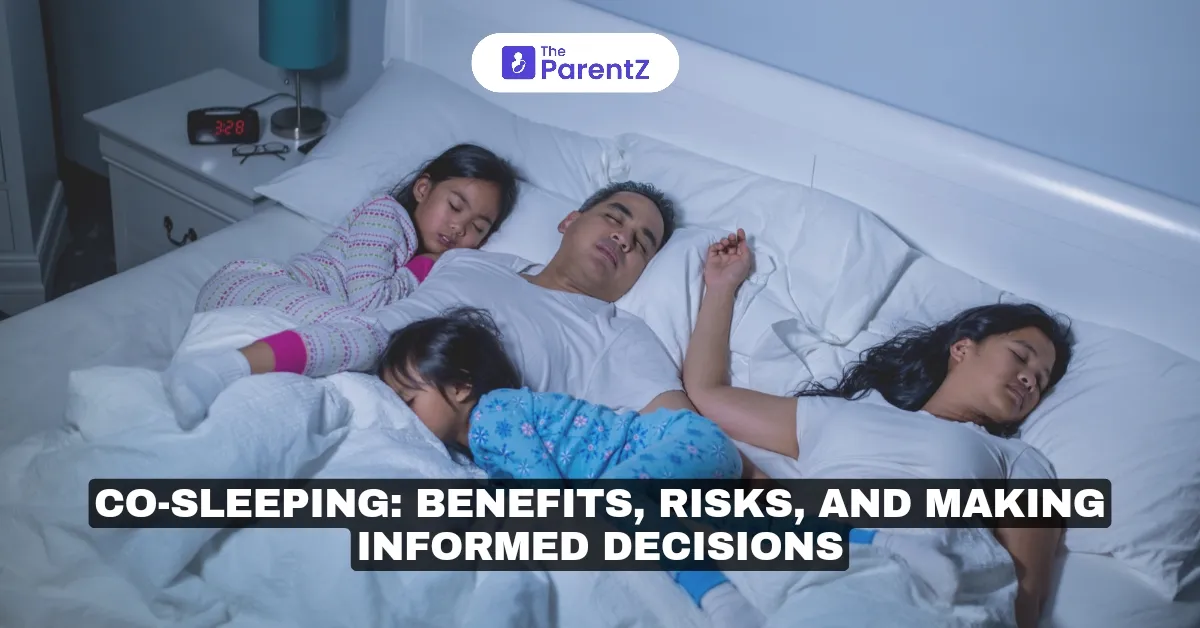For ages, parents across the world have shared their beds with their little ones. While there are several aspects to consider during parenting, co-sleeping is one such concern that is often influenced by culture, beliefs, and convenience. Even though co-sleeping plays a significant role in strengthening bonds and making nighttime parenting easier, it also raises questions about safety, sleep quality, and long-term impact on children.
Want to figure out whether co-sleeping is the right choice for your family? It's essential to understand its benefits, risks, and how you can make informed decisions. Read this article to learn more.
The Benefits of Co-Sleeping
From improved bonding to better sleep, here are multiple benefits of co-sleeping that have been given below.
Enhanced Bonding
Did you know that sleeping close to your baby can help them feel safe and calm? In fact, even studies have proven that co-sleeping babies may grow up with lower levels of anxiety. This is because they feel secure.
Convenience for Nursing Mothers
For breastfeeding moms, co-sleeping can make nighttime feedings quite easy. According to Pediatrics, moms who co-sleep often breastfeed for longer, which supports their baby’s health.
Better Sleep for Babies
The fact is babies tend to sleep better when they’re near their parents. And your presence can even regulate their breathing and heart rate.
Risks of Co-Sleeping
There might be a few risks associated with co-sleeping. Here are some of them.
Safety Concerns
One of the biggest worries with co-sleeping is safety. Sleeping in the same bed can increase the risk of Sudden Infant Death Syndrome (SIDS) or suffocation in case the sleeping space isn't safe. Did you know that according to the American Academy of Pediatrics, around 3,500 infant deaths each year in the U.S. are due to unsafe sleeping environments?
Disrupted Sleep
The truth is—babies move a lot, and their noises might wake you up, leaving both of you tired. Thus it can be said that co-sleeping isn’t always restful.
Dependency
Another concern involved here is that some children who co-sleep may have trouble transitioning to their own beds later. Thus, co-sleeping can make it harder for kids to develop independent sleeping habits.
Is Co-Sleeping For You? Making The Right Decision
In many cultures, co-sleeping is a normal part of family life. For example, in Japan, it’s common for families to sleep together in a shared room. This sleeping approach results in the country’s low infant mortality rates. In Western countries, co-sleeping is often encouraged as a sign of self-reliance.
Figuring out whether co-sleeping is good for your child can feel overwhelming. Therefore, the best way is to rethink your child’s needs and your family’s lifestyle. Some babies naturally crave closeness and sleep better near their parents, while others are independent and need their own space. Especially if your child struggles to settle or wakes frequently, co-sleeping can help comfort them.
Takeaway
Co-sleeping is a great way to connect with your baby, make nighttime easier, and ensure a safe sleeping environment for your little one. However, it's simultaneously important to know the risks and how you can co-sleep safely.





Be the first one to comment on this story.